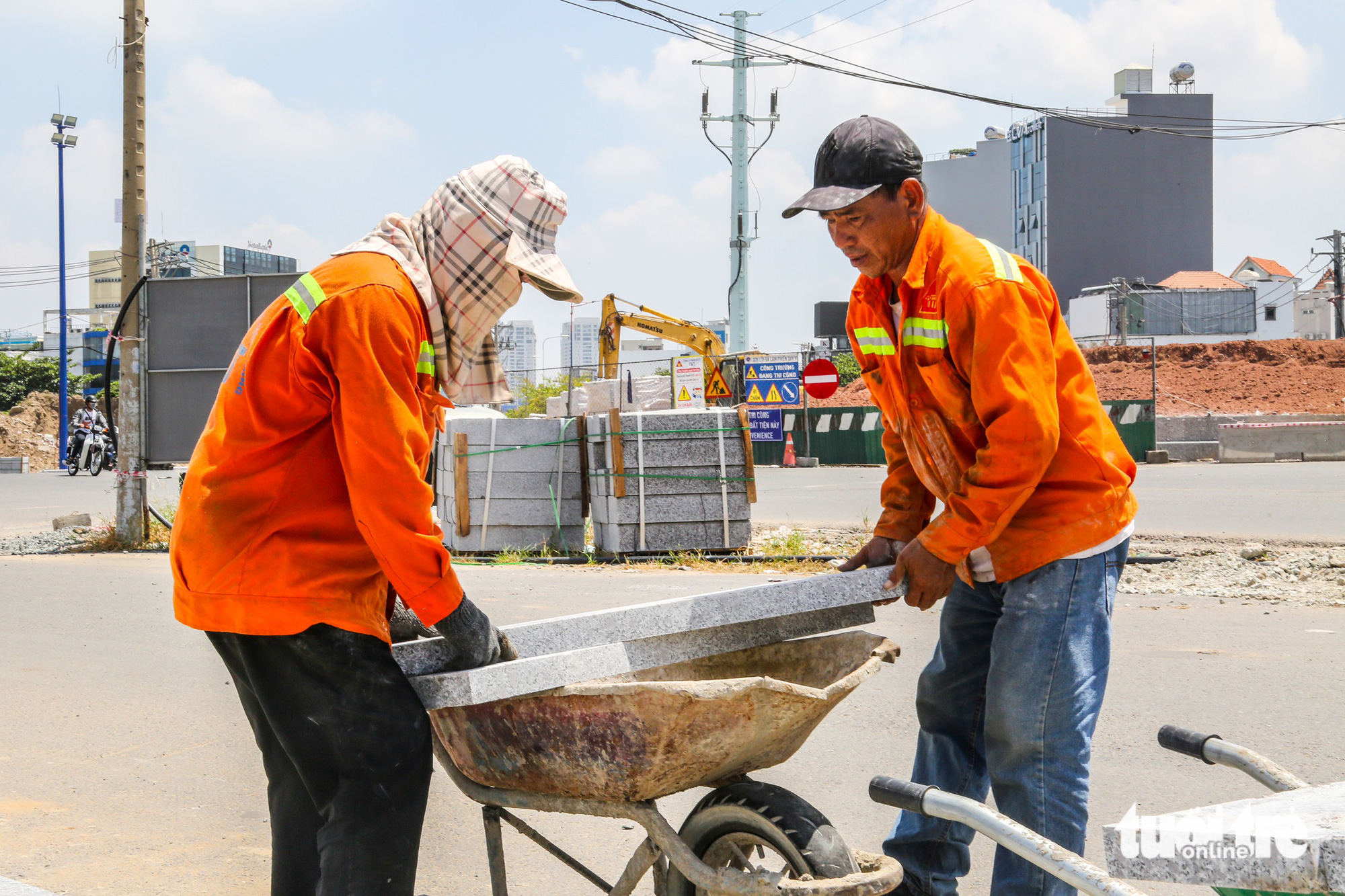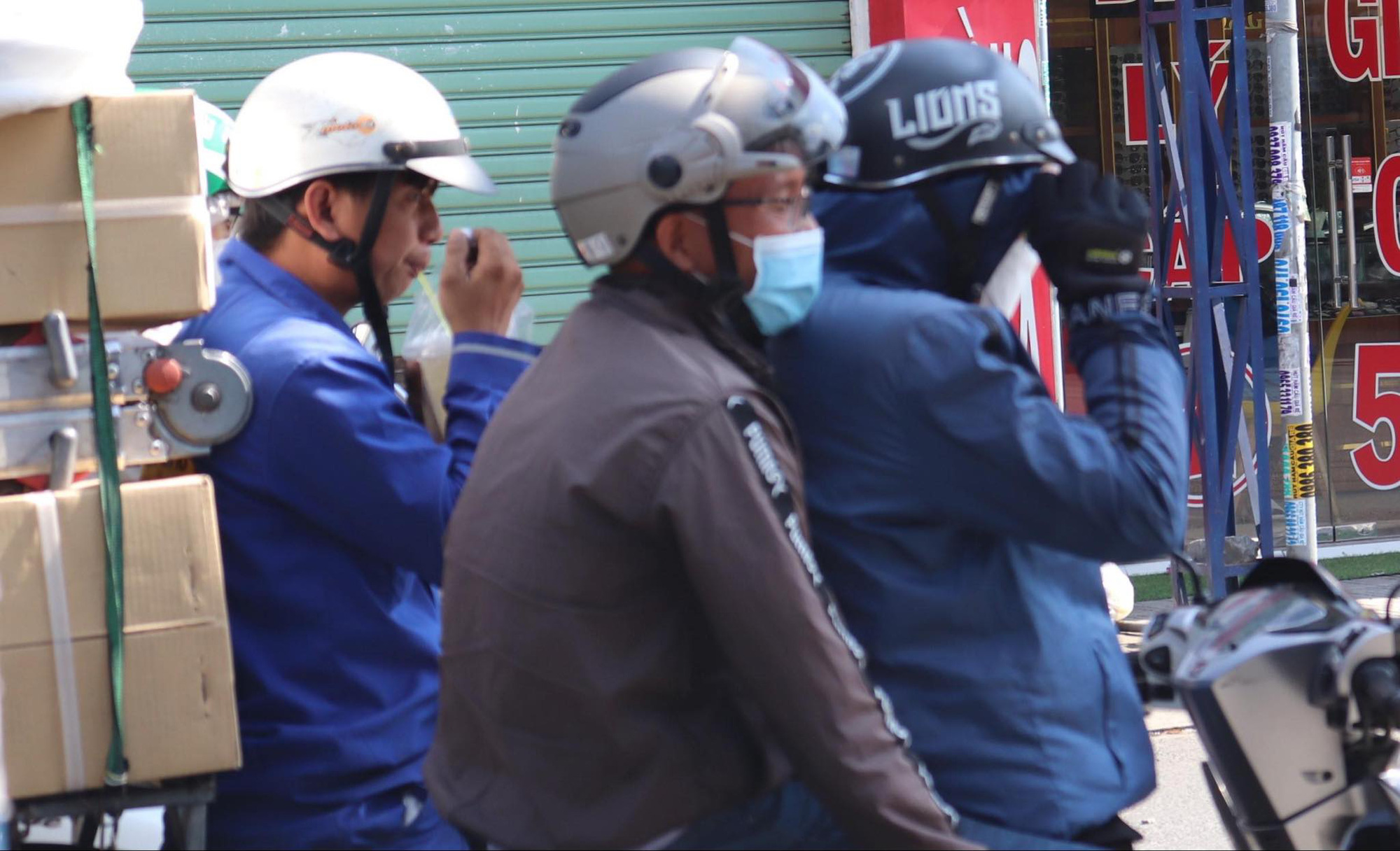The recent sweltering temperatures in many parts of Vietnam, including Ho Chi Minh City, have resulted in more people suffering from different types of heat-related diseases.
Hot weather still covered all regions of the country throughout Sunday, according to the National Center for Hydro-meteorological Forecasting.
The highest real temperature in Ho Chi Minh City was 36 degrees Celsius, but the ‘real-feel’ temperature reached 40 degrees Celsius.
The hot weather puts everyone at risk of heat stress, according to Dr. Phan Thai Son, deputy head of the intensive care unit at the University Medical Center under the University of Medicine and Pharmacy at Ho Chi Minh City.
The symptoms of heat stress can range from fatigue, dizziness, headache, red face, to confusion, difficulty breathing, drop in blood pressure, increased heart rate, and possibly coma.
More severe symptoms can lead to kidney failure, muscle destruction, tendon loss, brain and heart damage, and possibly death without prompt treatment, Dr. Son added.
Outdoor workers are at higher risk.
Thien, a 42-year-old resident of the city, whose work requires him to travel outdoors all day, said that the weather in Ho Chi Minh City has been boiling and uncomfortable since the end of January.
“Staying outdoors a lot makes me feel dizzy,” Thien said.
“My entire body is very uncomfortable as sweat pours out and wets my T-shirt.
“When driving long distances and not having time to drink water, my throat is dry.”
|
|
| A motorcyclist drinks water while waiting for a red light on a street in District 12, Ho Chi Minh City, April 2023. Photo: X. Mai / Tuoi Tre |
The unpleasant heat has also caused 32-year-old N.’s chronic sinusitis to recur, leaving her with headaches, a frequent runny nose, sneezing, and sinus pain.
“I thought I would only get sick in cold and rainy weather, but now it’s turned out that hot weather makes the same impact,” N. said.
Hospitals in the city have reported a rise in the number of young children, who are the most vulnerable to hot weather, seeking medical care for heat-related illnesses.
Children’s Hospital 2 saw a 20-percent increase, according to Dr. Doan Thi Thanh Hong from the hospital’s No. 1 respiratory department.
“Temperature changes make children susceptible to respiratory, skin, and gastrointestinal diseases due to many factors,” said Dr. Hong.
In order to prevent heatstroke, doctors recommend that people drink enough water, wear light-colored loose clothing, and limit outdoor work from 11:00 am to 2:00 pm.
When going out in the sun, people should be fully equipped with wide-brimmed hats, face masks, glasses, clothing, and work hats.
People should also avoid staying too long in the sun or in a hot environment and rest in a cool place after about an hour of work.
Like us on Facebook or follow us on Twitter to get the latest news about Vietnam!























































